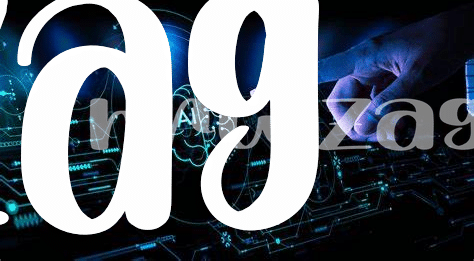Quantum Computing 101: the Basics Explained 🌐

Imagine a super powerful computer, one that plays by a different set of rules from the laptops and smartphones we’re used to. That’s the world of quantum computing, where things get a little strange but incredibly fascinating. Instead of using bits, which are like tiny switches that can be either off (0) or on (1), quantum computers use quantum bits, or qubits. What makes qubits so special is their ability to be in a state of 0, 1, or both at the same time, thanks to a principle called superposition. This means they can perform many calculations at once, speeding up the process of solving complex problems that would take traditional computers years to decode.
Now, why is this important? Because it touches everything from science to security, including the security of digital currencies like Bitcoin. To understand its impact, let’s break down how quantum computers do their magic. They also rely on another principle called entanglement, which Einstein referred to as “spooky action at a distance.” When qubits become entangled, the state of one (whether it’s 0, 1, or both) will instantly relate to the state of another, no matter how far apart they are. This entanglement allows them to communicate and solve problems in a fraction of the time it takes traditional machines.
| Feature | Traditional Computing | Quantum Computing |
|---|---|---|
| Data Representation | Bits (0 or 1) | Qubits (0, 1, or both) |
| Key Principles | Binary Processing | Superposition and Entanglement |
| Problem Solving | Sequential | Parallel |
| Use Cases | General Computing | Complex Problem Solving |
Breaking down Bitcoin: How It Stays Secure 🔒
Bitcoin keeps itself safe through a clever system called blockchain. Imagine a chain where each link is a box of information. Everybody who uses Bitcoin adds boxes to the chain by solving complex math problems, which is called mining. This makes it really hard for someone to mess with the information, because to change even a tiny bit of it, they would have to redo all the math for every single box, not just the one they want to change. It’s like if someone tried to cheat at a long game of dominoes by moving one piece, they’d have to set up the entire game again to get it to work.
To learn more about how Bitcoin protects itself from certain attacks, like someone trying to spend their bitcoins twice, you can check out https://wikicrypto.news/understanding-segwit-implications-for-bitcoins-security. This concept, known as ‘double spending’, is a key area where Bitcoin has to stay vigilant to maintain its security. The safeguards in place are there to ensure that once a bitcoin is spent, it cannot be spent again, maintaining the trust and integrity of the Bitcoin network.
Quantum Leap: the Threat to Bitcoin’s Security 🔑

Imagine a new super-powered computer, kind of like a superhero of the tech world, that can solve puzzles a million times faster than the computers we use today. This superhero is what experts call quantum computing. Now, think about how Bitcoin, the digital money a lot of us are excited about, stays safe. It uses really tough puzzles that regular computers take years to solve, keeping everyone’s Bitcoin secure. But, what if this superhero computer decides to solve these puzzles? Suddenly, those tough puzzles aren’t so tough anymore. This is the challenge Bitcoin faces. If a quantum computer decides to tackle Bitcoin’s security puzzles, it could potentially unlock the keys to everyone’s digital wallets in a snap. This doesn’t mean Bitcoin is doomed, but it’s like a wake-up call for the digital money world to beef up its defenses and get ready for this new player in the game. 🌍🔍💡
Preparation Is Key: Bitcoin’s Defense Mechanisms 🛡️

In the vibrant world of digital currency, the concept of keeping our virtual treasure troves safe feels a bit like an epic adventure. Just like knights had their armor, Bitcoin has its own sets of defenses designed to ward off the Trojan horses of the quantum era. Imagine a battlefield where on one side, we have the quantum computing giants, capable of breaking codes at the speed of light. On the other, Bitcoin, standing tall with its sophisticated security measures. These aren’t your run-of-the-mill shields but are more like upgrading an ancient fortress into a high-tech security system that can anticipate and adapt to the cunning strategies of quantum invaders.
For anyone invested in the digital realm, taking a closer look at how Bitcoin plans to keep our assets secure is crucial. Think of it as reinforcing the walls of your digital kingdom. Among these strategies is the continuous evolution of cryptographic puzzles that are harder for quantum computers to solve. It’s like constantly changing the locks on a treasure chest that everyone’s eyeing. Plus, the community surrounding Bitcoin is ever-vigilant, always on the lookout for the slightest hint of a quantum breach. They’re not just defenders; they’re guardians. For deeper insights into how these security concerns are becoming part of larger discussions, like in today’s culture and even music, check out bitcoin for small businesses security concerns. This blend of high-tech defense mechanisms ensures that our digital gold remains safe, making the future of Bitcoin seem like a fortified castle amidst a digital renaissance. 🛡️🔍💡
The Future of Money: Quantum Computing Vs. Bitcoin 💰
Imagine a future where our money’s safety and the speed at which we process transactions leap into a new dimension, thanks to the advancement in quantum computing. This isn’t a scene from a sci-fi movie; it’s a real possibility that experts are pondering. Quantum computers, with their superior speed and processing power, pose a challenge to Bitcoin’s current security protocols. But it’s not all doom and gloom. The Bitcoin community, known for its resilience and ingenuity, isn’t sitting back. Innovators are already on the case, developing new encryption methods that could safeguard Bitcoin against even the most powerful quantum attacks. Meanwhile, quantum computing could also usher in a new era of financial technology with the potential to revolutionize not just security but how we conduct transactions across the globe. The race is on, and the outcome could redefine the future of money.
| Aspect | Impact on Bitcoin | Potential Outcome |
|---|---|---|
| Quantum Computing Power | Challenges current security protocols | New encryption methods developed |
| Financial Technology Advancements | Revolutionizes transaction processes | A more secure, faster transaction world |
Keeping Your Coins Safe: What Can You Do? 🕵️

In a world where the buzz around quantum computing and its potential impact on Bitcoin security grows louder, it’s natural to wonder 🤔 how you can keep your digital treasures safe. The key lies in staying informed and being proactive. Much like you wouldn’t leave your physical wallet lying around in public, the same care and attention should go towards your Bitcoin security. Updating your knowledge on the latest security measures is crucial, and a great start is by getting familiar with bitcoin in popular culture security concerns. This doesn’t just mean setting strong passwords but also understanding the importance of regularly updating your software to patch any vulnerabilities that could be exploited by quantum computing’s immense power. Diversifying how you store your Bitcoin, using both hot (online) and cold (offline) storage options, can also add an extra layer of security. Remember, while the technology landscape evolves, so do the tools at your disposal to protect your investment. Embracing a blend of vigilance, education, and the right security practices will help ensure that your Bitcoin remains just where it should be – safely in your control. 🛡️💡
